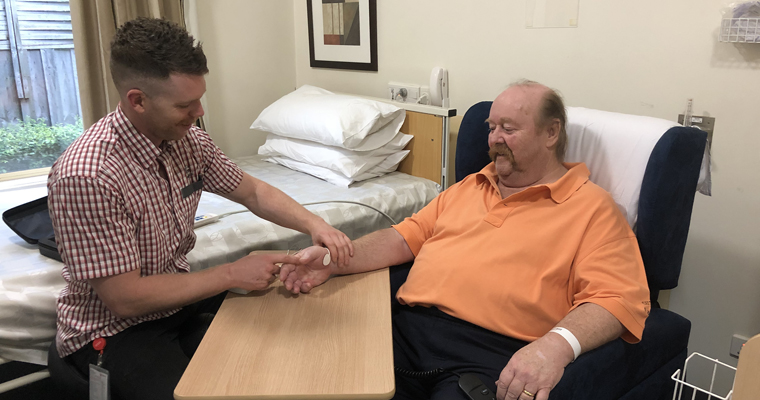Occupational therapy is an important part of rehabilitation
25/10/2019

Occupational therapy is an important part of rehabilitation in the hospital setting. During Occupational Therapy Week (October 21-27) we are celebrating our dedicated occupational therapists, who help improve the lives of our patients every day.
Cabrini occupational therapist Mitchell Mackenzie said it was a relatively misunderstood practice.
“Occupational therapy is an important part of rehabilitation but people don’t usually have exposure to it until they actually need it, so there isn’t much awareness of what we do amongst the general population,” he said. “Events like Occupational Therapy Week bring our profession into the spotlight and help educate the public about what we do.”
Occupational therapists work with diverse patients in many areas including community health, mental health, paediatrics, orthopaedics, disability, aged care, neurology/ABI, hand therapy, oncology and palliative care.
Mr Mackenzie said occupational therapy was a client-centred health profession, focused on enabling people to participate in the activities of everyday life with a strong focus on independence.
“We focus on what the patient wants to do and support them to participate in their roles and activities as independently as possible in their own environment.”
Mr Mackenzie said a big part of his role in inpatient rehabilitation was to provide assessment of an individual’s home. Following assessment, recommendations regarding modifications, equipment and services are provided to the patient and family to facilitate a safe transition home.
“Part of what we do as occupational therapists is to help patients adapt to performing tasks with restricted mobility, movement or cognitive capacity. We carry out home assessments to make modifications in bathrooms, kitchens and other parts of the home by introducing things like hand rails and other equipment to allow patients to return home and support independent living following a diagnosis or injury that reduces a person’s functional capacity.”
Occupational therapists form part of Cabrini’s multidisciplinary teams, responsible for treating patients and managing their care. Mr Mackenzie said maintaining a healthy lifestyle could help reduce risk factors for many conditions. “Staying healthy, eating well, exercising regularly, managing your cholesterol, watching your blood pressure and not smoking all help to reduce your risk factors for stroke and other conditions.”
Cabrini has occupational therapists who provide care to both inpatients and outpatients.
To learn more visit our Allied Health Centre page.